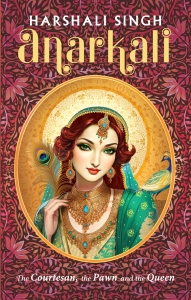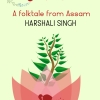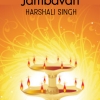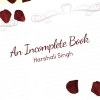
1. The Kiss of Death
An endgame checkmate involving the Queen and King. I have always had a complex relationship with my breath. I have feared its absence and coveted the ease with which people forget its presence. My life always revolved around the air that passes in and out of my body, constantly craving more and more, like an addict needs his afeem fix. A little bit more each day to survive.
My body could withstand and eventually forget the pain of childbirth, but it refuses to make sense of a well-timed blow to the side of the waist. It remembers with alacrity the searing pain of a scorching ring of fire on the soles of my feet or the spine-chilling, quick, repetitive sound of small nails hammered into my hands. It recalls vividly the power behind driving iron spikes in my knees. Even the bones of my face ache and feel fragile and breakable. I know the beatings were meant to break me, to make me repent my decisions, beg for forgiveness. Or at the very least, to plead for the pain to stop. But despite all this anguish, my focus remained on my stuttering breath. I suppose only one who has felt its lack can relate to my preoccupation with it.
The body hides and heals, draws strength even when there is none, evolves and adapts to poorly knit bones, bleeding cuts and dislocated shoulders.
The mind, however, replays and analyses all the decisions I took to bring me to this moment in time. It latches onto a memory to avoid addressing the ongoing commotion that has spiralled into what I assume one would call hell.
But not for long. Not for long. For I have lost; this queen has fallen.
My swollen eyelids cast low; I stand witness to my destiny as it plays out its last obscene dance. Tethered to the wooden board with iron shackles around my neck, wrists, waist and ankles, chains crisscrossing my body, I wait. Not for a hero or a prince to save me. . .for I am my own asb. I wait for this war to end. The war that has been my life. There were battles I won and battles I lost, all in the name of love. I take his name in my heart, knowing that even my lips cannot silently commit this blasphemy.
Light filters through the jaali of the small ala, imitating the grid of the shatranj4 board. And I am the measly ferz, A concubine, a pawn, a queen.
The sound of stone bricks falling into place one after the other reverberates in this quiet antechamber. The mason is deftly laying them atop each other, confining me in their opaqueness, making quick work of Zille Ilahi Akbar’s farmaan6. I understand his need to finish the work as soon as possible. It is not every day that Akbare- Azam oversees the creation of a mere mason. These are the defining moments of his life.
Closing my eyes, I pray for my heart to be filled with forgiveness for those who have sought my ruin. My prayers remain unanswered. I fear they would be annihilated, burnt to a cinder, if I were to look at the ones that watch this tableau of my impeding end with glee. Such fury burns within me, constantly blazing since my first memories.
The bricks are almost to my knees. A few more, and I shall forever be entombed in the walls of this Lahore Mahal. Random thoughts come unbidden, abstract and with no sense of propriety of time when one is staring at the end of one’s life. This thought stream is as much a realisation and a reassurance of my reality.
Still clad in the thin, soiled garara7 that clings to my skin, the chill of the dank room makes me shiver. The shimmering peacock blue kurta has turned grey with the mouldy grime of my prison cell in the tahkhana under the harem mahal. This ante-chamber behind Shahenshah Akbar’s resting room, or khwabgah, is where I shall be buried in the wall to become a part of his conquest forever.
This is the farmaan, the punishment he has decreed for my treacherous choices.
Rivulets of sweat run down my armpits and back even as panic digs its claws deeper. I resist the urge to scream, cry, and beg to be released and clench my fists and teeth against the terror that rises with each laboured breath. Lifting my leaden eyelids, I track the shadowed faces before me.
Directly in front of me is the grey, wrinkled face of the man who watches me with a beady stare. Akbar-e- Azam.
‘Beg for mercy,’ he demands, ‘cry and submit to me as you have done again and again since you were twelve years old.
I still recall his eerie touch. His obsessive and piercingly accusatory eyes graze over my scantily clad body, as they had when I was but a child.
He wants to see the old, weak Anarkali begging at his feet. Does he not know? That Anarkali was unaware of the world outside the four walls of the harem. She had not a single coin in her name and was burdened with a debt she could not have paid off her entire life.
But this Nadira has the self-assurance that comes with living a chequered life, falling and getting up to start over. I will never give him that pleasure again.
I bite my lip, taking a second to collect myself and step back from the precipice of dread. I lock my trembling knees, stiffen my back, square my shoulders and lift my chin. A challenge and an adamant zidd9 in my silence against what they wait for me to shout, ‘I shall forever be the Anarkali to the mighty Akbar, at his disposal to serve all his perverse pleasures. I will find my happiness in his harem, never thinking of anything or anyone else except him and his desires.’
That Anarkali is long dead and shall never be resurrected.
I avert my eyes to look at the others who stand beside him, waiting for this night to end, with mixed emotions. I see pity in one and a sense of rightness in the second, a vendetta realised. There is glee in the third. This elation makes me want to buckle and beat my fists on the ground at the unfairness being meted out.
I can see the mind of the Sadar-I-Sadr, the head of the religious advisory closest to the Shahenshah, working overtime to find the best way to interpret my disgrace to his benefit. This noose of propriety and honour that seems only the responsibility of women will be tightened further in the coming years.
If he is indeed the man of God, why did God sanction such a horrid man to deliver his message to unsuspecting and weak folk?
‘Seek forgiveness, Anarkali; at least you won’t burn in jahannum10. The fire in hell is all consuming and for all eternity.
His lips curl in derision at my answering silence before he walks to stand in the shadows of the pillar, away from the light.
My eyes fall on the one who stands a distance away, his face expressionless, Raja Mansingh—Durjan’s father and one of the nav ratans of Akbar’s court. He poses a picture of a defeated soldier. Turned away from me, he faces the wall before him unblinkingly, stoic in his stillness. The rough metal shackles that weigh down my neck chafing my skin raw, lie invisible on him. Bound by his loyalty to his King, he cannot voice his anguish or look at me, the reason for his irreparable loss. I feel his despair coming at me in towering waves.
He blames me for everything instead of the man he calls Jahanpana. The man who ordered the beheading of his beloved son. The man who let his own son, the perpetrator, go free with only an admonishment. I know he blames me, a woman who, like his son, will soon lose her life for love.
I mentally urge him to turn his face towards me. To look at me with the eyes so like Durjan’s. I want to look into those eyes as the last brick is laid that shall entomb me in this Shahi Kila for all eternity. But Raja Mansingh is unmoved, lost in his thoughts.
Thack! Thack!
The sound startles me, pulling me out of the spiral. The mason hits the brick with the end of his trowel to fit it into the groove before he lines the curved wall with a thick coating of mud, forever immuring me within its skeleton. Like our wild hearts are confined in the ribcage.
This decree was passed by Akbar-e-Azam to show the common man, the awam, that he spared no one who stood against him. Not his son, Salim, not his most loyal subject’s son, Durjan, who had supported his son. And certainly not me, a mere kaneez, his concubine, his khwas.
My immurement was but an example to all the women of Hindustan. We belonged to him, body, heart and soul. We could not think or, feel, or want anything for ourselves. We were simply his property to do as he pleased when he pleased.
The brick resisted the hammering of the mistry to fit it into the smaller groove it deserved. The mason struck it repeatedly, breaking its edges bit by bit.
I understand you, o’ stone brick. I, too, tried to write my destiny and protested against being moulded into a lesser version of myself. For a time, I succeeded. But just as they shave your edges, break you piece by piece to fit you in this furrow, they had done the same to me.
And that I shall never agree to, not anymore, for I have tasted the sweet stickiness of acceptance. My mind is wandering again. I rein it back and focus on the men who are getting restless.
Abu’l Fazl, the court historian, sneers, meeting my gaze. He has already informed me that he shall erase me from the pages of history, and I believe him. After all, whatever he writes in the Akhbarnama will go down in history as a fact of these times.
Until the hunted can write his story, the future will believe the hunter’s version.
Written by a man to be read by men. Who cares what women feel and think. Maybe it is better that I shall fade into nothingness. I don’t want to be a part of their convoluted fantasies. For that was what I am to these potbellied, old, smelly men who remain drunk on power and war, forever slaves to their lurid desires.
Birbal whispers something in Akbar’s ear, and he turns his head away. I feel relieved to be away from his blatantly assessing gaze that scores my skin. I long for my dupatta. How I used it hate its existence, finding it another way to oppress women. But today, faced with these eyes that want to rip at my thin clothes, I wish to wrap myself in its folds. Without its protection, I feel naked, more vulnerable than when I entertained Akbar in transparent mulmuls that felt like water on my bare skin.
The cold air raises goosebumps on my skin. I am scared to take a deeper breath for fear of these eyes noticing the rise and fall of my breasts under the gossamer Peshwa.
Was it still lying discarded and crumpled somewhere in the four-quartered garden of the Daulat-Khana-e-Khas-o-Aam. I winced at the remembered pain when Akbar’s veiny yellowed hands had ripped it off my head when I was. . . publicly shamed.
About the Author







Comments